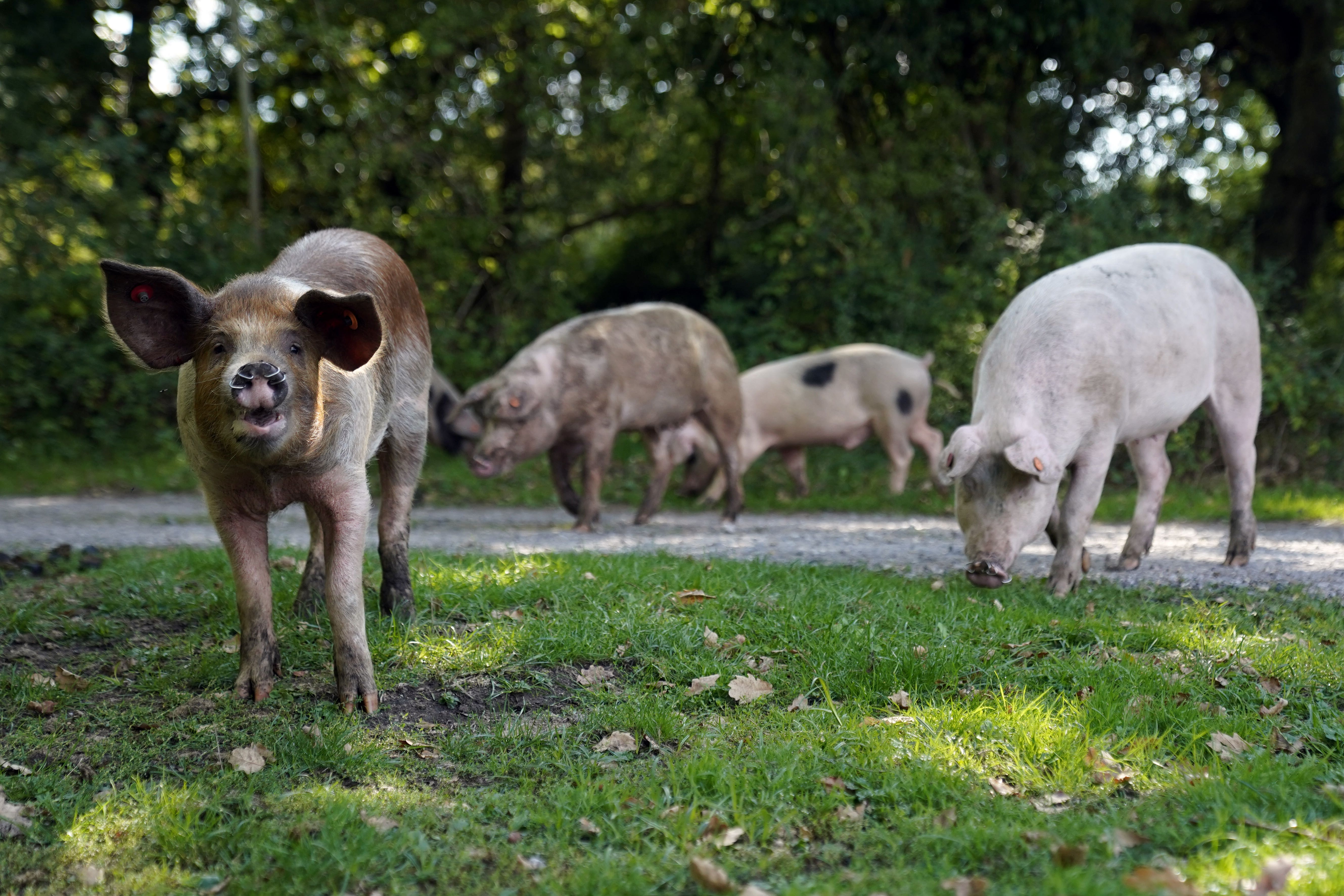New Forest pannage ham granted protected geographical indication status
The air-dried ham is made from pigs allowed to roam free in the New Forest during ‘pannage season’ to forage acorns and beechmast.

Your support helps us to tell the story
From reproductive rights to climate change to Big Tech, The Independent is on the ground when the story is developing. Whether it's investigating the financials of Elon Musk's pro-Trump PAC or producing our latest documentary, 'The A Word', which shines a light on the American women fighting for reproductive rights, we know how important it is to parse out the facts from the messaging.
At such a critical moment in US history, we need reporters on the ground. Your donation allows us to keep sending journalists to speak to both sides of the story.
The Independent is trusted by Americans across the entire political spectrum. And unlike many other quality news outlets, we choose not to lock Americans out of our reporting and analysis with paywalls. We believe quality journalism should be available to everyone, paid for by those who can afford it.
Your support makes all the difference.Ham made from pigs released into the New Forest during “pannage season” has been granted protected status on a par with Melton Mowbray pork pies and Welsh leeks.
New Forest pannage ham now holds full protected geographical indication (PGI) status throughout Great Britain, meaning consumers can be confident that the product they are buying is genuine and producers are protected from imitations.
The air-dried ham is made from pigs allowed to roam free in the New Forest during pannage – a right dating back centuries that entitles locals to release their animals to forage fallen acorns and beechmast for around two months each autumn.
The pigs safely eat as many acorns as they like, clearing the area for the ponies and cattle that can poison themselves if they eat too many.
Our traditional foods help to form the backdrop of British life, and with a 1,000-year heritage New Forest pannage ham is a part of our national food story
Between 30 and 100 New Forest animals die each year from eating too many acorns.
The pigs’ acorn diet – similar to that of pigs raised to produce Iberico ham in Spain – results in a buttery, nutty flavour to the meat, which is darker in colour than regular pork.
A century ago as many as 6,000 pigs were released into the New Forest each pannage season, but that number now stands at around 600.
Food minister Mark Spencer said: “New Forest pannage ham now carries the same protection as Melton Mowbray pork pies and Welsh leeks.
“Our traditional foods help to form the backdrop of British life, and with a 1,000-year heritage New Forest pannage ham is a part of our national food story.”
Producer David Richards, from charcuterie producer Capreolus Fine Foods, told the PA news agency he was “delighted” with the status.
It's just like Iberico pork but it's produced here in Hampshire. It's incredible that nobody knows about it
“It’s really exciting. We’ve been putting pigs out to forage in these woods and forests for centuries. The pigs love the acorns and it imparts the most wonderful, nutty, buttery taste to the meat.
“It’s just like Iberico pork but it’s produced here in Hampshire. It’s incredible that nobody knows about it.”
Mr Richards said the amount of product was extremely limited, and he was able to produce just 70 legs of the ham last autumn.
“If we can get the British public to buy British air-dried ham made from acorn-fed pigs, maybe farmers will be able to put more pigs out,” he said.
The GI label is a British version of the EU protected status scheme which guards the geographical origin of food and drink such as Parma ham and Champagne.